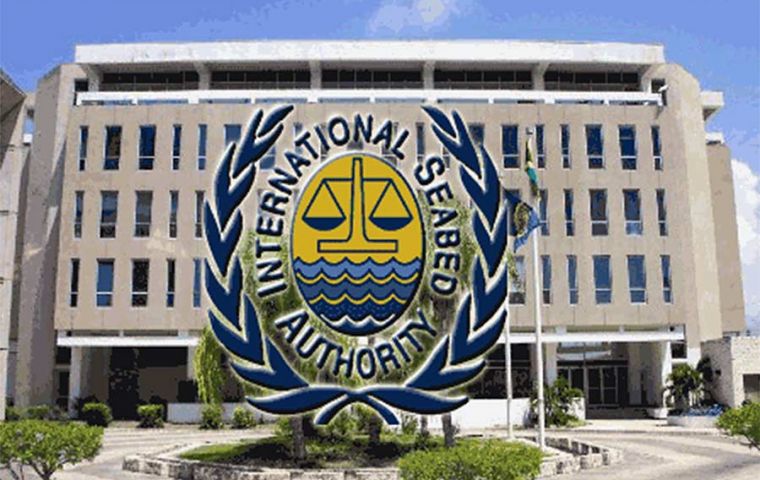MercoPress. South Atlantic News Agency
Applications for ocean floor mining opened, but no mining code yet approved
 Undersea mining will be conducted to extract key battery materials, cobalt, copper, nickel, and manganese — from potato-sized rocks called “poly-metallic nodules”.
Undersea mining will be conducted to extract key battery materials, cobalt, copper, nickel, and manganese — from potato-sized rocks called “poly-metallic nodules”. Following two weeks of negotiations, the United Nations International Seabed Authority has decided that it will start taking permit applications in July from companies that want to mine the ocean's floor.
The undersea mining will be conducted to extract key battery materials — cobalt, copper, nickel, and manganese — from potato-sized rocks called “poly-metallic nodules” found at depths of 4 kilometers to 6 kilometers.
The Jamaica-based ISA was established under the UN Convention on the Law of the Sea, and it holds authority over the ocean floors outside of its 167 member states' Exclusive Economic Zones.
The draft decision of ISA's governing council allows companies to file permit applications from July 9. In a virtual meeting to be held before July, the governing council will debate whether permission to applications can be delayed.
In the absence of a mining code, which has been under discussion for nearly 10 years, the 36-member ISA council is uncertain about the process it should adopt for reviewing applications for mining contracts.
In 2021, Nauru invoked a clause that allowed it to demand a mining code be adopted within two years.
“It is now clear that there is still a long way to go and that the two-week session in July will be largely insufficient to finalize the code,” Belgian ambassador Hugo Verbist said.
Voicing their concerns, several nationals called for a moratorium on industrial mining at the ISA's council meeting. Non-governmental organizations and experts have warned against the damaging repercussions of deep-sea mining.
“Deep-sea mining would go beyond harming the seabed and have a wider impact on fish populations, marine mammals, and the essential function of the deep-sea ecosystems in regulating the climate,” Vanuatu's representative, Sylvain Kalsakau, said during negotiations.
Several countries including Canada, Australia and Belgium have insisted that mining cannot begin without strict rules.




Top Comments
Disclaimer & comment rulesCommenting for this story is now closed.
If you have a Facebook account, become a fan and comment on our Facebook Page!